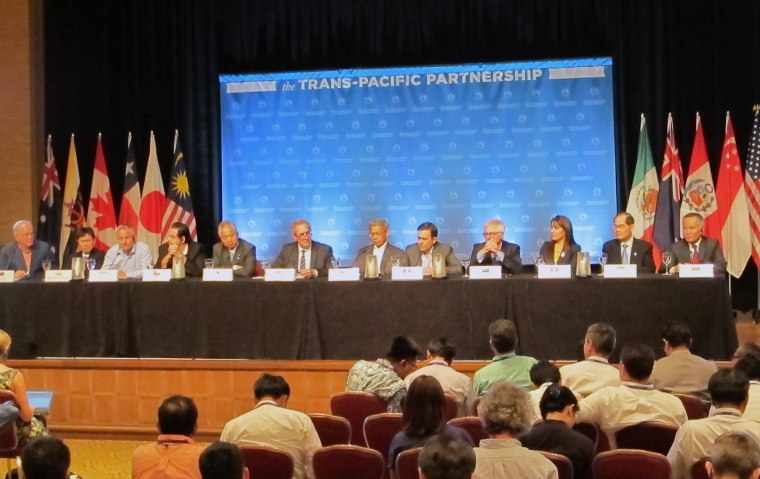Trade ministers from a dozen Pacific Rim nations failed to reach a deal on a new trade agreement that would cover nearly 40 percent of the global economy, U.S. Trade Representative Michael Froman said Friday.
Froman, reading from a statement on behalf of all of the ministers, said the parties made significant progress and agreed to continue their discussions.
The countries haven't yet set a date yet for future talks. Froman said some issues were bilateral in nature, and some will involve groups.

"I feel very gratified about the progress that's been made and I am confident that through our continued intensive engagement that we'll be able to tackle the remaining issues successfully," Froman said in response to a reporter's question about whether he was disappointed about the lack of a deal.
Japan's economic and fiscal policy minister, Akira Amari, said he thought a deal would be reached with one more meeting.
The ministers, who have been meeting at a hotel on Maui's Kaanapali Beach since Tuesday, said in a joint statement they are more confident than ever that an agreement is within reach to support jobs and economic growth.
The Trans-Pacific Partnership negotiations are aimed at erasing most tariffs and other barriers to trade and investment among participants. It would also clarify and standardize trade rules, making it easier for companies to sell goods and services in the Pacific Rim.
The wide-ranging discussions have addressed tariffs on autos, rice and dairy products, as well as intellectual property protections for pharmaceuticals.
The talks have also covered establishing environmental protections for participant nations, which range from developing countries like Vietnam to industrial powers like Japan.
President Barack Obama's administration has said a pact would boost U.S. economic growth and help keep high-quality jobs in the country by increasing exports.
Critics have complained that the deal is being negotiated in secret and that it favors multinational corporations over workers and consumers.
Participants include the United States, Australia, Brunei, Canada, Chile, Japan, Malaysia, Mexico, New Zealand, Peru, Singapore and Vietnam.
